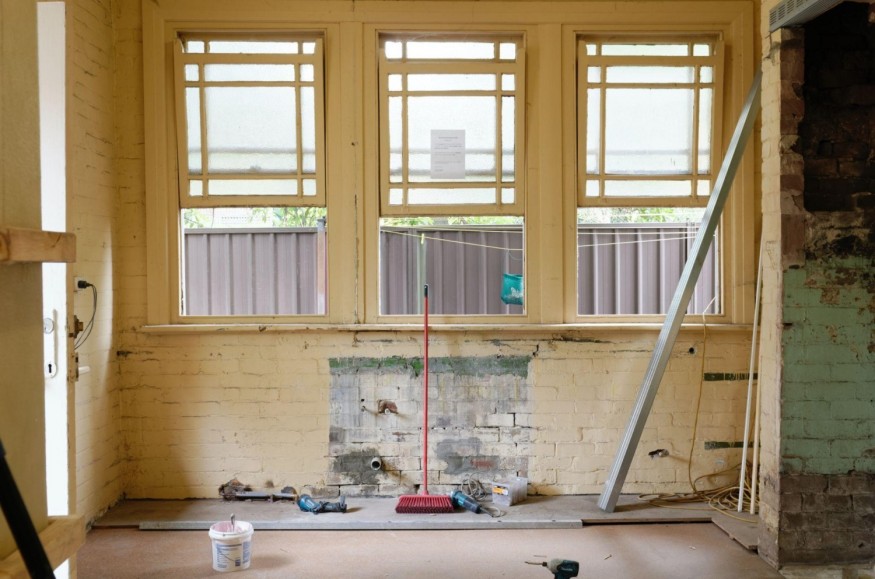While there's been a lot of data compiled about how real estate markets have fared during the pandemic, there's been far less about how landlords have done. That said, it's important to look further than real estate markets to better understand how the pandemic has impacted landlords, especially small, mom-and-pop landlords.
Taking an in-depth look at how the pandemic has impacted landlords and changed their business practices can help investors make better business and management decisions in the future.

Rent Collection Was Down Substantially in 2020
Data collected from a few different sources all show the same thing: rent collection was down substantially in 2020. JP Morgan conducted a thorough analysis of landlord business accounts as well as account holders that hold an investment property in a personal account. Their data concluded that in the spring of 2020, revenue was down 20% compared to 2019, and by the end of 2020, the revenue was down 3% compared to 2019.
In addition to this research, two nationwide surveys provide more information about how the pandemic impacted landlords. A UC-Berkeley Terner Center for Housing survey found that "[r]oughly a third of landlords reported declines in rent collection during the pandemic, although smaller-scale landlords reported more substantial losses."
Harvard's Joint Center for Housing Study (JCHS) surveyed 2,500 landlords from 10 cities and found that:
● The share of landlords collecting 90% or more of rent fell by 30% in 2020
● Ten percent of landlords collected less than half of their annual rent in 2020, with smaller landlords more likely to have tenants deeply behind on rent
● In each of the 10 cities included in the survey, there was a three to four-fold increase in the number of renters that owed 10% or more rent at the end of 2020
It's worth noting that while the data shows some nationwide trends, location was a significant factor in determining how landlords were impacted. Landlords in San Francisco, New York, and Miami saw the greatest declines, while Landlords in Phoenix, Houston, and Dallas collected the same or more rent in 2020 than they did in 2019.
Landlords Changed Their Business Practices
Another trend that emerges from the data is that many landlords made two notable shifts in their business practices in 2020: 1) they allowed tenants more concessions 2) they cut expenses as much as possible.
As for concessions, both the JCHS and Terner survey found that during the pandemic landlords were more likely to grant rent extensions and to forgive back rent. The number of landlords granting rent extensions rose from 15% in 2019 to 48% in 2020. Additionally, the number of landlords forgiving back rent rose from 3% in 2019 to 21% in 2020.
While this change is noteworthy, the second shift, of cutting expenses as much as possible, could have more substantial long-term impacts on landlords and rental markets. One way that landlords cut expenses was by taking advantage of forbearance programs. Yet, the most common way of cutting expenses was deferring maintenance. The number of landlords that deferred maintenance rose from 5% in 2019 to 31% in 2020.

As a result, many landlords have kept their account balances at normal levels, even with missed rent payments. Unfortunately, this is a misrepresentation of how the last year and a half impacted their business. Deferred maintenance expenses will still have to be incurred and, the reality is that the result of deferring maintenance often is emergency repairs and higher expenses for landlords.
Understanding the Impact on Landlords
While there have been a number of programs aimed at helping renters since the spring of 2020, there have been far fewer for landlords who continue to incur expenses even if tenants miss rent payments. Government support like unemployment benefits, stimulus payments, and rental relief programs have helped to prevent worse outcomes for landlords, yet many landlords have experienced a decline in rental revenue and have deferred maintenance that needs to be addressed.
Adding to this challenge is the reality that many landlords have not taken advantage of rental relief programs available to help ease these burdens. The JCHS found that only 42% of landlords with delinquent rent have taken advantage of housing programs, while the Terner survey found that only around a third of landlords have taken advantage of such programs.
Going forward, more landlords should take advantage of this relief for increased stability in a volatile period. Additionally, it's reasonable to expect that some landlords will increase rental prices in the next year to help recoup expenses for maintenance and to increase revenue.
Finally, once data is compiled from 2021, it'll be important for landlords to compare this data to that of the last two years to determine whether the above shifts are going to be short or long-term.
The pandemic has been difficult on landlords, but staying informed about rental markets and being aware of the support available to landlords is one of the best things investors can do to get the most out of their rental properties.
This article is brought to you by this site, the best source for state-specific lease agreements.
© 2025 Realty Today All rights reserved. Do not reproduce without permission.



